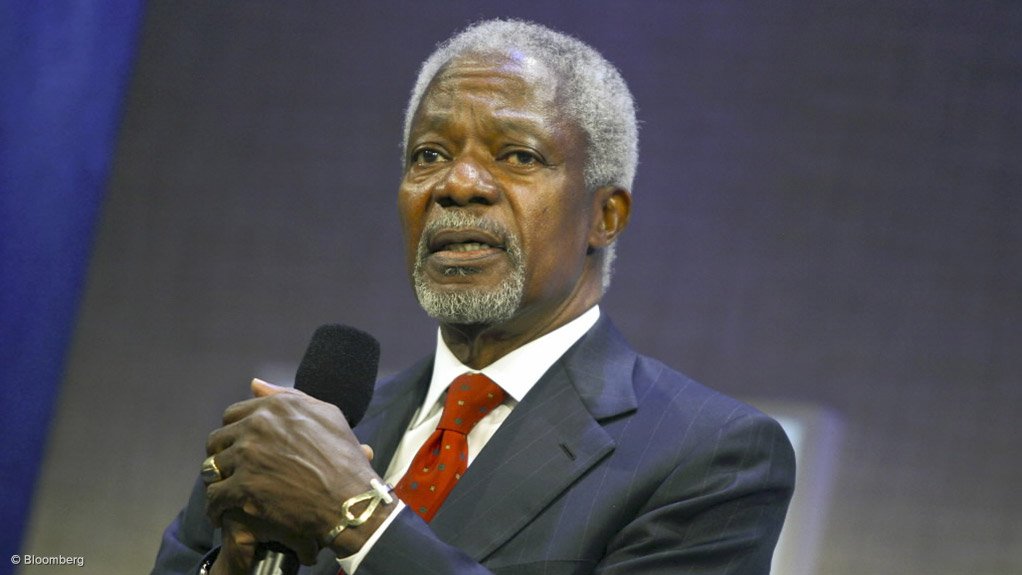The African Progress Panel has released a report calling for a ten-fold increase in power generation to provide all Africans with electricity by 2030.
The report, released at the World Economic Forum on Africa, in Cape Town, outlined various ways to help achieve this goal, including urging African governments to cut the $21-billion they spent on subsidies to lossmaking utilities.
It suggested that such subsidies should be redirected towards connection subsidies and renewable-energy investments that will deliver energy to the poor.
Members of the panel called on governments to reduce corruption, strengthen regulations and increase public spending on energy infrastructure. They also encouraged African governments to use the region’s natural gas resources to provide domestic energy, as well as export energy, while harnessing Africa’s vast untapped renewable-energy potential.
“We categorically reject the idea that Africa has to choose between growth and low-carbon development,” said Africa Progress Panel chairperson Kofi Annan.
“Africa needs to use all of its energy assets in the short term, while building the foundations for a competitive, low-carbon infrastructure,” he added.
The report revealed shocking statistics of how Africa had been left behind. More than 600-million Africans did not have access to electricity. In Burundi and Guinea, 98% of primary schools did not have access to electricity.
In some countries, access to electricity had fallen as connection charges increased. It would take the average Tanzanian around eight years to consume as much electricity as an American uses in one month, it pointed out.
“The way we are going, we will only be able to electrify Africa by 2080. It’s unacceptable to leave our people behind in the development curve,” former South African Finance Minister Trevor Manuel said at the launch of the report.
There was also concern about the continent’s vulnerability to climate change.
“Failure to change the way we do business is almost suicidal,” said Africa Progress Panel member Graca Machel.
The report also called for international cooperation to close Africa’s energy sector financing gap, which it estimated would be $55-billion a year to 2030.
Machel said 2015 was a year of great opportunity, with the crucial climate summit in Paris in December, and the United Nations meeting in New York in September to adopt 17 global sustainable development goals.
But the report authors were wary of the attitude of some countries. They outlined that current proposals still fell far short of a credible deal for global warming to no more than 2 °C above pre-industrial levels.
The report condemned Australia, Canada, Japan and Russia for effectively withdrawing from constructive engagement on climate change.
“By hedging their bets and waiting for others to move first, some governments are playing poker with the planet and the lives of future generations,” said Annan, adding that countries like Ethiopia, Kenya, Rwanda and South Africa were emerging as frontrunners in the global transition to low-carbon energy.
The ten-member Africa Progress Panel advocated for equitable and sustainable development in Africa.
EMAIL THIS ARTICLE SAVE THIS ARTICLE
To subscribe email subscriptions@creamermedia.co.za or click here
To advertise email advertising@creamermedia.co.za or click here











